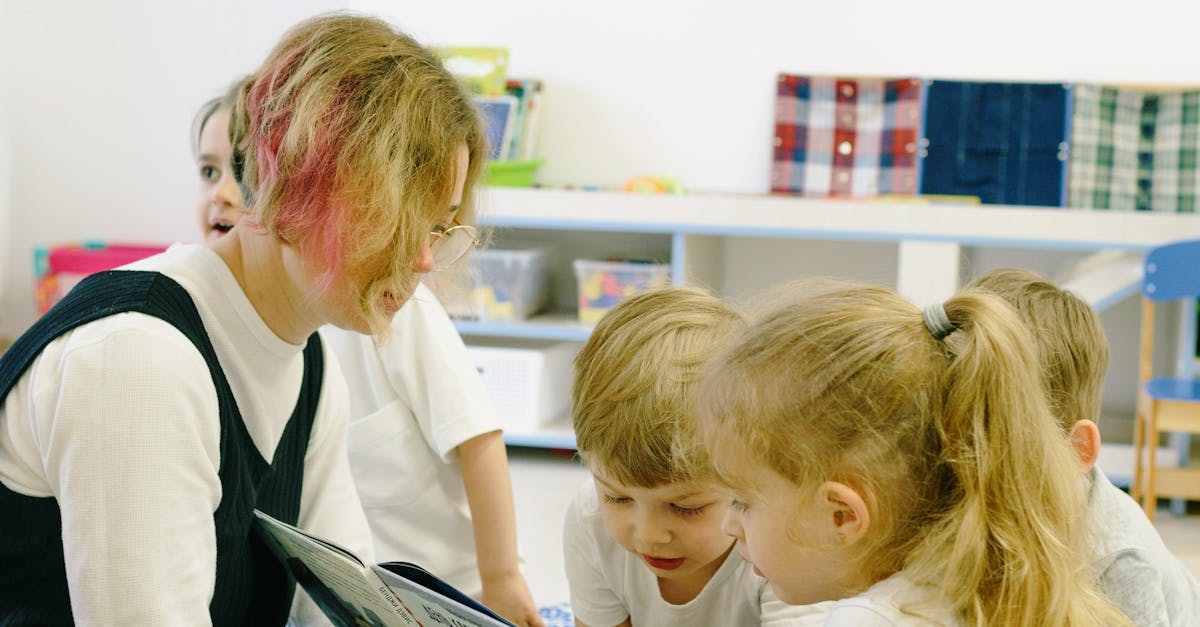
The implementation of Mental Health First Aid training in schools fosters an environment where mental wellEducators often encounter significant obstacles when trying to implement Social and Emotional Learning (SEL) programs within their classrooms. A primary challenge lies in the entrenched curriculum, which frequently prioritises academic achievement over emotional and social development. Teachers may feel pressed for time, limiting their ability to incorporate these essential lessons alongside their core subjects. Additionally, a lack of training and professional development opportunities can hinder teachers' confidence in effectively delivering SEL content. Throughout their educational journey, students experience various shifts in their peer relationships influenced by multiple facEvaluating Outcomes in Diverse Populations
The effectiveness of social and emotional learning (SEL) programs varies significantly across different cultural groups. To assess these outcomes, researchers must employ culturally responsive evaluation methods. Traditional metrics may fail to capture the nuanced ways in which diverse populations engage with SEL concepts. This necessitates the development of new assessment tools that reflect the values, beliefs, and communication styles of various cultural backgrounds. A tailored evaluation approach can provide insights into how different groups perceive and benefit from SEL initiatives.
Analysis should also consider the contextual factors that influence outcomes. Factors such as socioeconomic status, community resources, and familial support play a critical role in shaping the effectiveness of SEL programmes. Evaluators must gather qualitative data alongside quantitative measures to understand the lived experiences of participants fully. Engaging with the communities involved can lead to more accurate interpretations of the impact of SEL on diverse populations. This comprehensive understanding aims to inform future programming and ensure that educational initiatives are both effective and inclusive.
Resources for Educators
Educators seeking to enhance their cultural sensitivity in Social and Emotional Learning can benefit from a variety of resources. Numerous books delve into the intersection of SEL and cultural competence, offering insights and strategies for inclusive education. Titles that focus on case studies from diverse settings provide practical examples of successful approaches. Additionally, professional development programmes specifically addressing cultural sensitivity are essential for educators looking to integrate these principles into their teaching.
Online platforms also offer an array of training materials tailored for diverse populations. Workshops and webinars led by experts in the field present opportunities for interactive learning and peer engagement. Access to curriculum guides that include culturally responsive strategies can assist educators in adapting their lessons to meet the needs of all students. These resources create a foundation for educators to foster an inclusive environment that values each student's unique background.
Books and Training Materials on Cultural Sensitivity
A variety of resources are available to educators seeking to enhance their understanding of cultural sensitivity within social-emotional learning (SEL) frameworks. Notable books such as "Culturally Responsive Teaching and the Brain" by Zaretta Hammond provide insights into how cultural contexts influence learning and can help educators tailor their approaches. Additionally, "The Dreamkeepers: Successful Teachers of African American Children" by Gloria Ladson-Billings offers perspectives on effective teaching strategies that resonate with diverse student populations.
FAQSTraining materials offered by organisations focused on diversity often include workshops, webinars, and online courses. These resources aim to equip educators with strategies to foster inclusive environments, addressing the unique needs of students from varied backgrounds. Moreover, curriculum guides that incorporate cultural narratives can help teachers create more relatable and engaging lessons, ultimately leading to better educational outcomes for all students.
What is Social and Emotional Learning (SEL)?FAQS
Social and Emotional Learning (SEL) refers to the process through which individuals acquire the skills to manage emotions, set goals, show empathy for others, establish positive relationships, and make responsible decisions.What is cultural sensitivity in the context of social-emotional learning (SEL) training?
How can SEL be integrated into the curriculum?Cultural sensitivi
Peer groups typically evolve as students progress through different educational stages, with friendships often shifting based iding professional development for teachers, using collaborative learning opportunities, incorporating SEL into lesson plans, and fostering a supportive classroom environment that encourages open dialogue about emotions and relationships.How can educators implement cultural sensitivity in their SEL training?
What challenges do educators face when implementing SEL?Educators can implement cultural sensitivity by incorporating diverse perspectives in their curriculum, engaging with community resources, participating in training programmes focused on cultural competence, and actively seeking feedback from students and families.
Educators may encounter challenges such as lack of training, insufficient resources, resistance from stakeholders, and limited time to incorporate SEL into already packed curricula.What are some successful examples of SEL programs that focus on cultural sensitivity?
Can you provide examples of successful SEL implementation in schools?Successful examples include programmes that integrate cultural narratives into their lessons, employ culturally relevant teaching strategies, and collaborate with local communities to ensure that the SEL content resonates with students' cultural identities.
Successful implementation examples include schools that have adopted comprehensive SEL programmes, created dedicated time for SEL activities, and reported improvements in student behaviour, academic performance, and overall school climate as a result.Where can I find resources to improve my understanding of cultural sensitivity in education?
Resources for educators can be found in various forms, including books on cultural sensitivity, online training materials, workshops, and webinars. Many educational organisations and universities also provide resources specifically addressing cultural competence in SEL.
Related LinksIncorporating Reflective Practices in SEL Professional Development
Designing Effective Workshops for SEL Training in SchoolsCustomising Professional Development Workshops for Diverse Teaching Contexts
Developing Leadership Skills in Educators for SEL Implementation
Facilitating Active Learning in SEL Professional Development Sessions